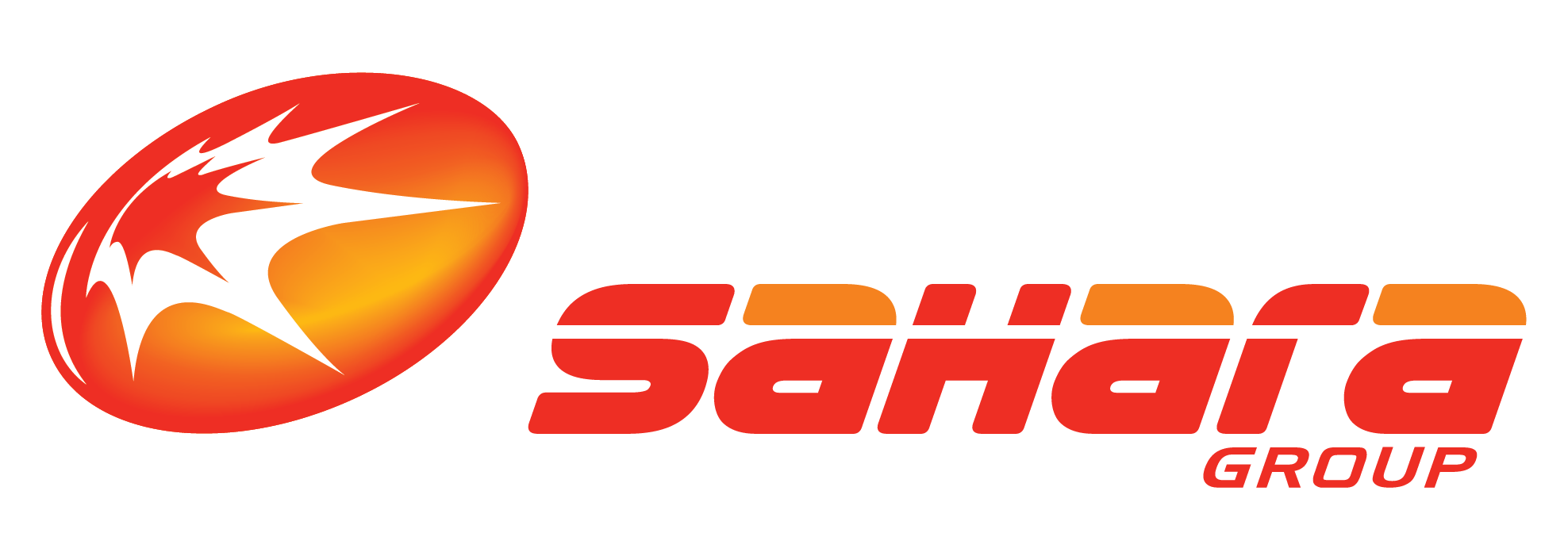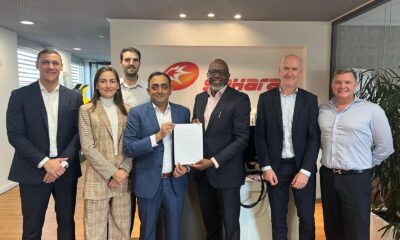Energy
Sahara Group Opens 2025 GMT Program

As part of efforts to sustain robust talent development, Sahara Group has flagged off the 2025 edition of its transformative Graduate Management Trainee (GMT) Program, renowned for moulding young professionals into global business leaders.
Head, Corporate Communications, Sahara Group, Bethel Obioma, said the energy conglomerate’s GMT program has an impressive track record of producing exceptional business leaders who embody the “unique and irrepressible Sahara DNA”.
According to him, “The Sahara GMT program epitomizes our dedication to making a difference responsibly through creatively deployed human capital transformation strategies”.
ALSO READ: Gowon @90: I Embrace Transformative Power Of Forgiveness For National Healing – Obi
It was gathered that the GMT is open to young graduates with excellent grades, while applications would “run from October 24 to November 1, 2024”, according to a company statement.
Group Head HR, Sahara Group, Emilomo Arorote, who happens to be a product of the GMT Class of 2009 noted that as an equal opportunity employer, the Sahara GMT Program is open to individuals desirous of giving their career dreams the “perfect start”.
In her words, “Sahara is a place where dreams are realized, and endless possibilities abound. Our GMT Program is peerless, giving successful candidates platforms for growth across the entire energy sector value chain. All you need to do head to www.saharagmt.com or check our social media channels to apply. We are excited to welcome the next generation of global talents into the Sahara family.”
Successful candidates will enjoy several learning and development benefits, including mentorship and buddy support, engagement in impactful business and CSR projects, and coaching from strategic leaders within Sahara.
“We seek individuals who see themselves as globally competitive. Participants will tackle challenging business scenarios, receive invaluable mentorship, and experience our multicultural work environment across Africa. Asia, Europe and the Middle East,” Arorote emphasized.
The Sahara GMT Program has since become a key part of Sahara Group’s talent pipeline, producing leaders in Sahara’s upstream, midstream, downstream, power, infrastructure, and technology businesses.
On his part, Director, Governance and Sustainability, Ejiro Gray, (a member of GMT class of 2007), said; “Every Sahara Group GMT is a potential world business leader. The GMT Program allows you to discover yourself and gives you the opportunity to make a difference.”
Reflecting on the Program’s transformative impact, a member of the 2010 GMT set and current CEO of Asharami Synergy, Nomnso Dike, remarked, “The GMT experience laid the foundation for my career and has propelled many GMTs into leadership roles in Sahara.”
Head, Employee Relations and Coordinator, Sahara GMT Program, Ivie Temitayo-Ibitoye, advised applicants to follow the progress of the Program on Sahara Group’s social media channels, adding that candidates will receive seamless support, including a session on “The Sahara GMT” on Asharami Radio, Sahara Group’s unique radio platform.
Energy
SNEPCo, Former MD Aiboni Win Energy Times’ Awards

The Shell Nigeria Exploration and Production Company (SNEPCo) has been named Major Oil Company of the Year for last year by a Nigerian publication, Energy Times.
Biztellers reports that this is in recognition of the company’s contributions to deep-water oil and gas development and the industry generally.
Energy Times also awarded the title of Amazon of Nigeria’s Oil Sector for 2024 to Elohor Aiboni, a former Managing Director of SNEPCo now on international assignment in Brunei.
The awards were presented to SNEPCo’s Senior Operations Manager, Bolanle Odunayo-Ojo, who represented the Managing Director, Ronald Adams at a ceremony attended by key stakeholders in the oil and gas sector.
ALSO READ: BREAKING: Again, Dangote Cuts Petrol Price To N835 per Litre
“We are honored to receive the recognitions for the company and our former Managing Director as they underscore our dedication to excellence in the upstream sector,” Bolanle stated. “The modest achievements are result from teamwork and support by our partners, particularly the Nigerian National Petroleum Company Limited and regulatory agencies. The awards encourage us to continue to work together to power progress and innovation in Nigeria’s energy landscape.”
The SNEPCo has been a pioneer in Nigeria’s deep-water oil and gas production since it began production from Bonga in 2005, Nigeria’s first deep-water well. Gas from Bonga is also piped to Nigeria Liquefied Natural Gas Company Limited at Bonny Island. SNEPCo’s operations have led to significant discoveries, including Bonga Southwest in 2001 and Bonga Northwest, which began production on August 5, 2014.
In its award, the Board of Directors of Energy Times pointed to the continuing success of Bonga, notably production of the 1 billionth barrel of oil in February 2023 and the recent Final Investment Decision on the $5 billion Bonga North project.
The award on Aiboni’s highlights a career that has seen her serve in various business and leadership roles within and outside Nigeria. She was appointed Managing Director of SNEPCo in 2021 and led initiatives that deepened operational efficiency, local content development and social investment projects across the six geopolitical zones in the country.
Energy
Shell Commends Oloibiri Lecture Series As Platform For Change

Shell Nigeria Exploration and Production Company Ltd (SNEPCo,) one of the sponsors of the Oloibiri Lecture Series and Energy Forum (OLEF) has commended it as a platform for driving change in Nigeria’s energy sector through the discussions that centre on business performance, cost discipline and process simplification.
“This event is special to the Shell brand, not only because of the nostalgia of Oloibiri but the quality of discourse it has enabled in our sector over the years,” SNEPCO Managing Director Ronald Adams said in a goodwill speech delivered by General Manager, Wells and Geosciences Operations Joe Mordi. He said: “We are grateful to the Society of Petroleum Engineers and our host the Petroleum Technology Development Fund (PTDF) for another successful outing.”
Organised by the Society of Petroleum Engineers (SPE) Nigeria Council, the Oloibiri Lecture Series and Energy Forum began in 1991, in commemoration of the country’s first commercial oil discovery by Shell at Oloibiri, Bayelsa State, in 1956. Ronald said recent developments in the Upstream and Downstream sectors of the energy industry, including the $5-billion final investment decision by Shell in the Bonga North Deepwater project echoed the sentiments around the first oil discovery.
ALSO READ: No Safety Guarantee For Unscheduled Visitors To Benue – Gov Alia
He noted that, “These strides come with a commitment to excellence required of us – for stakeholders, colleagues, our country and indeed, future generations. The theme for this year ‘Driving energy sustainability through technology, policy and supply chain excellence’ reflects this commitment. The future is bright, and we have the opportunity to co-create it.”
Energy
NLNG Improves Nigeria’s Domestic LPG Supply Efficiency

In line with its continuous improvement culture, the Nigeria LNG Limited (NLNG) will be working closely with its stakeholders to improve operational efficiency in its domestic Liquefied Petroleum Gas (DLPG) supply in Nigeria.
According to a statement from its General Manager, External Relations and Sustainable Development, Sophia Horsfall, this was highlighted at an engagement session with stakeholders in Lagos.
It was gathered that the NLNG plans to enhance engagement and improve operational efficiency of its LPG supply through digitalisation of some of its processes which include a new platform designed to streamline regulatory processes, optimise risk management, and enhance the buyer experience. The platform will feature IT-supported relationship management, automated issue resolution, centralised real-time payments, and improved case management systems, ensuring a seamless supply process despite market shifts and external pressures.
ALSO READ: Ifon-Ilobu Crisis: Adeleke Assures Of Quick Restoration Of Peace
Manager, Commercial Contract Management, NLNG, Tolulope Longe, reiterated that the planned improvements will enable and consolidate NLNG’s resolve to delivering 100% of its LPG supply to the Nigerian market.
She said a strategic roadmap was in play to ensure the achievement of NLNG’s longstanding goals of LPG being accessible and available in the country, aligning with its vision of being a globally competitive energy company, improving lives sustainably. She also harped on the significance of these improvement initiatives and the Company’s push for LPG utilisation as a clean energy source alternative to kerosene and other fossil fuels
Longe noted that the Company remained focused on growth and sustainability of the LPG market by continuously enhancing its supply processes in collaboration with offtakers. She stressed NLNG’s commitment to collaborating with stakeholders to maintain pricing stability and long-term market viability. While acknowledging industry concerns, she noted the importance of operational efficiency in meeting market demands.
NLNG aims to strengthen stakeholder engagement and improve market efficiency in the LPG sector through enhanced customer interactions, minimised schedule disruptions, timely confirmations and deliveries, and prioritisation of customers with demonstrable capacity. As it adapts to market realities, NLNG remains committed to driving sustainability and delivering lasting value to Nigerians.




















